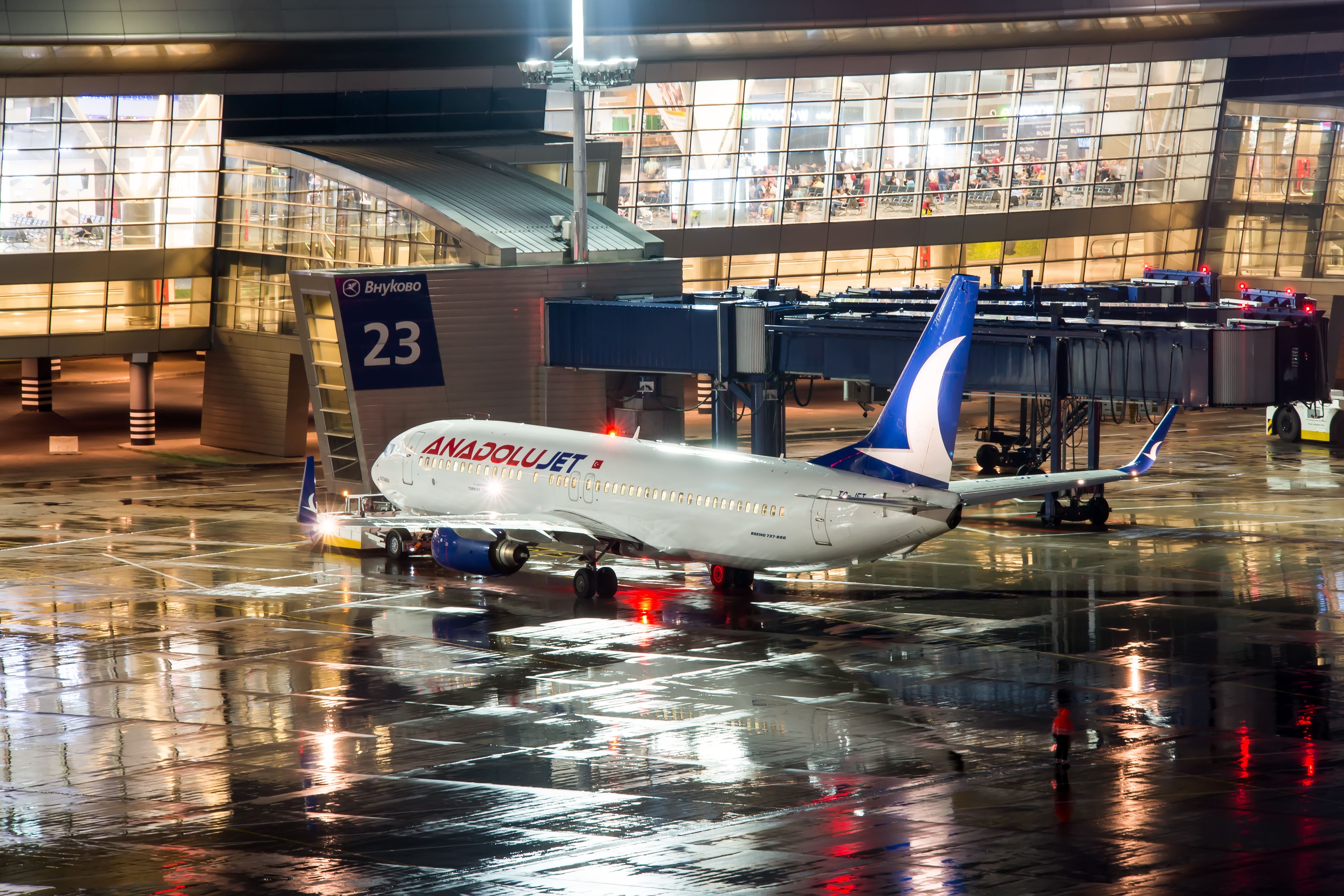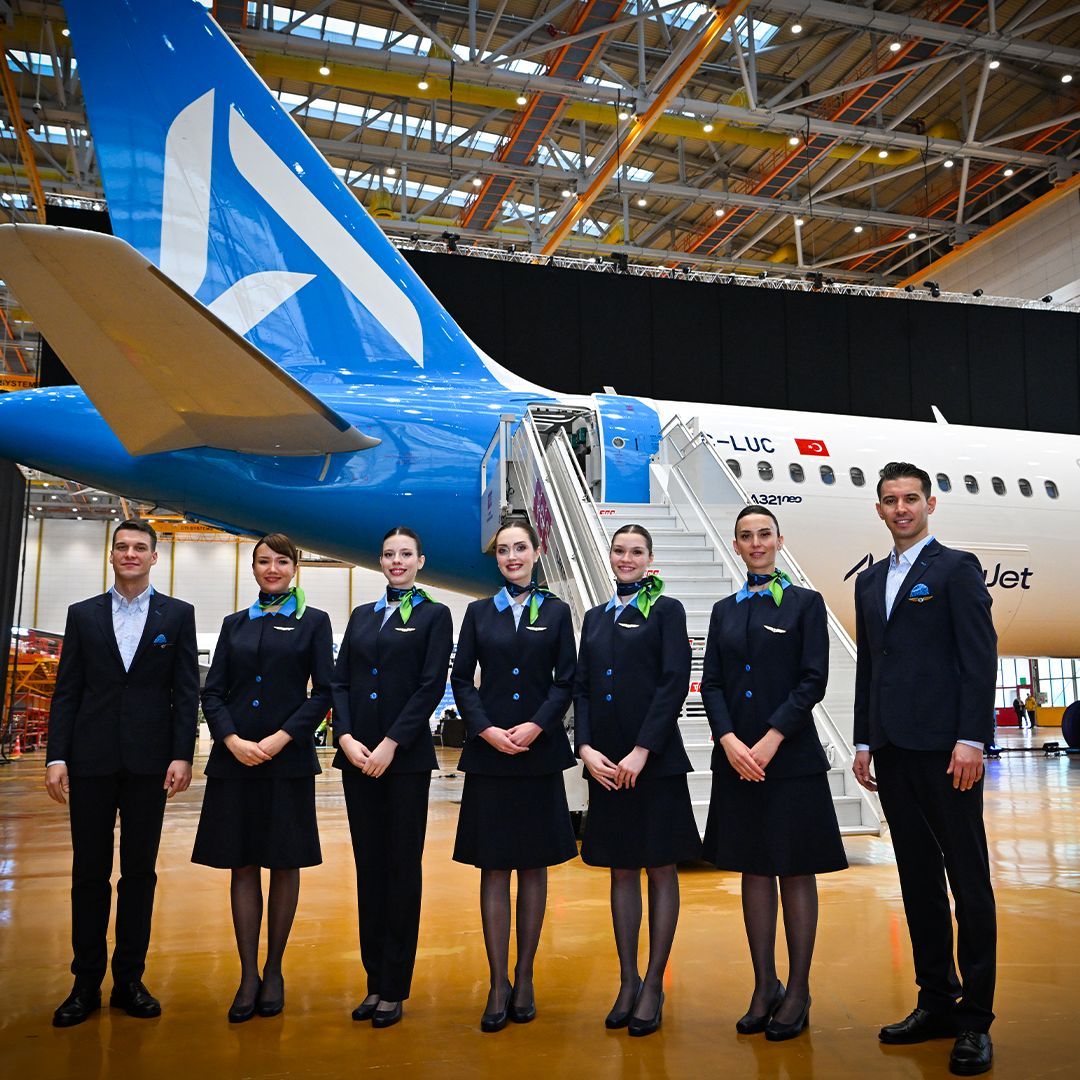Summary
- Turkish Airlines is launching a new independent low-cost carrier called AJet, a spin-off of its low-cost subsidiary AnadoluJet.
- AJet has unveiled a new livery featuring lighter colors and a more minimalistic design than AnadoluJet’s previous paint scheme.
- The airline will launch in March 2024 and will operate a fleet of Airbus and Boeing narrowbody aircraft, focusing on sustainability and customer experience.
Turkish Airlines has unveiled the new livery for AnadoluJet’s spin-off, AJet. The new low-cost carrier is set to launch in March 2024, following the Turkish flag carrier’s decision to devolve budget subsidiary AnadoluJet into a fully independent carrier.
Changing faces
AJet’s new livery sees the carrier shake off AnadoluJet’s red and dark blue paint scheme in favor of a lighter, minimalistic livery provided by Turkish Technic at Istanbul’s Sabiha Gökçen International Airport (SAW). The first aircraft to undergo the transformation is an Airbus A321neo, TC-LUC, delivered to the low-cost carrier in October 2022.
Turkish Airlines confirmed plans to spin off AnadoluJet into a separate airline in late 2022 amid the low-cost carrier’s post-pandemic expansion. Speaking at the time, Turkish Airlines’ chairman Ahmet Bolat noted the evolution of the industry’s current market dynamics, making it easier to boost the growth plans of an independent airline as opposed to a subsidiary. AJet was subsequently announced in February 2023,
The livery unveiling coincided with the new airline’s announcement that the Turkish Minister of Transport and Infrastructure, Mr Abdulkadir Uraloğlu, had given the green light for AJet to launch services at the end of March. In a post shared to social media site X, formerly Twitter, the rebranded airline noted,
“Our adventure, which has been successful for years, is here with its new name. Stay tuned to spread your wings to the future with AJet!”
AJetting off
Turkish Airlines previously attempted to launch an AnadoluJet spin-off in 2021; however, a change in market conditions left the idea shelved until late 2022 following the airline’s rapid post-pandemic growth. According to Turkish Airlines, the carrier hit an average load factor percentage of 90%, nearly ten percentage points higher than Turkish Airlines.
Over the past several months, AnadoluJet has expanded its services further, adding routes between Istanbul and Belgrade’s Nikola Tesla Airport (BEG), Ankara Esenboğa Airport (ESB) and London Stansted Airport (STN), and Istanbul and Rome–Fiumicino International Airport (FCO).
In a statement shared on Friday, Bolat explained Turkish Airlines’ plans for the future of AJet ahead of its 2024 launch. Bolat added,
“In line with our goals for the next 10 years, we are proud to have started the establishment process of our AJet. The efforts and dedication we have put in for a long time have paid off, and we will introduce AJet to the skies with the summer schedule at the end of March 2024. We fully believe that AJet, with its new name, will become an important part of the low-cost aviation industry on global scale.”
AJet’s fleet will comprise a mix of AnadoluJet’s current Airbus and Boeing narrowbody inventory, including 14 Airbus A321neo and 46 Boeing 737-800. Alongside the livery rebranding, AJet will overhaul AnadoluJet’s existing cabin, adding new seating and providing employees with new uniforms. The carrier will continue to center its operations out of Ankara and Istanbul, with its rebranded image to focus on sustainability, customer experience, and aviation accessibility.

6 Ways In Which AnadoluJet Is Building A Growth Platform
The airline aims to have next-generation aircraft across its fleet by 2033.
What are your thoughts on AJet’s new livery? Let us know in the comment section.
Sources: AeroTime, FlightGlobal


